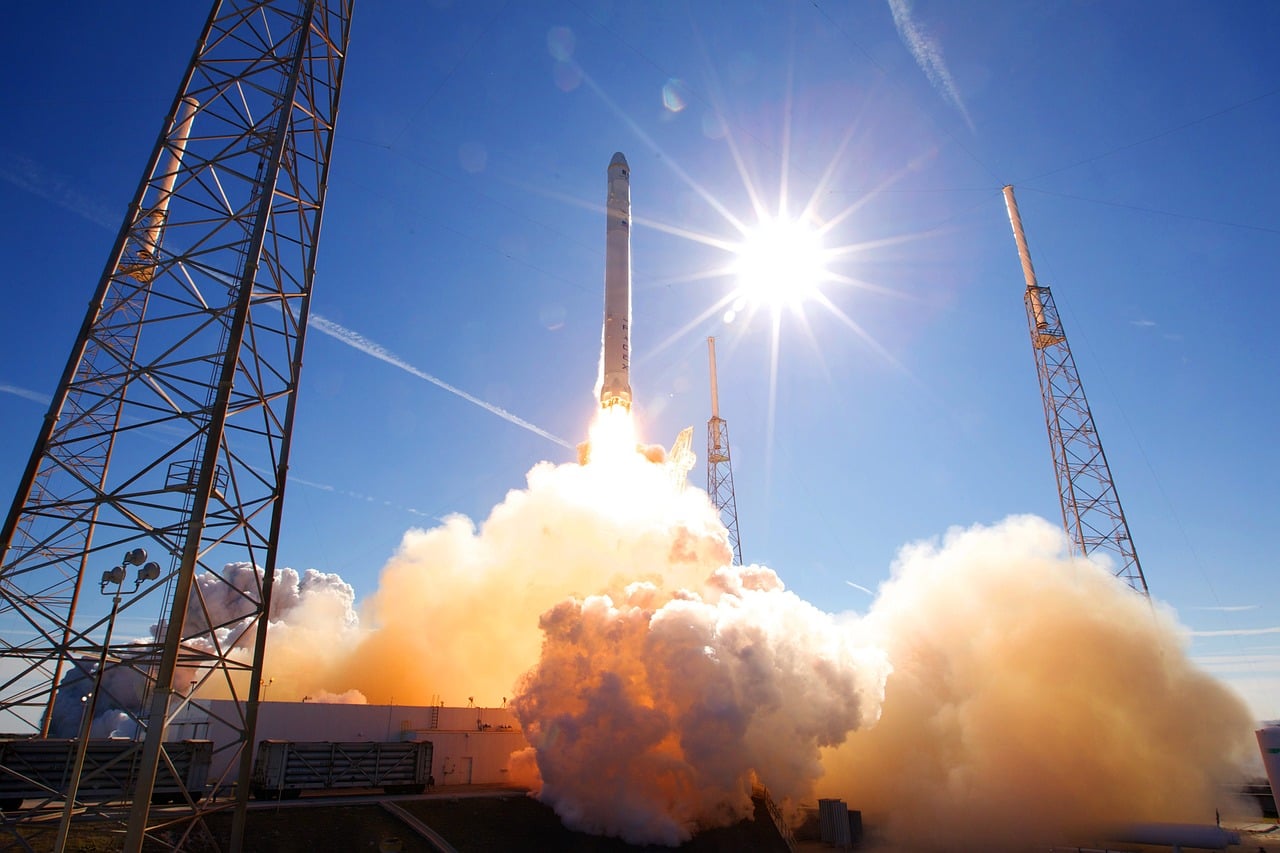
SpaceX is preparing for another attempt at a major milestone launch for its Falcon 9 rocket on Tuesday. The U.S. Air Force lists the next launch window for the rocket for between 12:33 a.m. and 2:33 a.m., and forecasts see a 90% chance of favorable weather for the launch window.
SpaceX had been planning the Falcon 9 launch for last weekend, but it tweeted that it was delaying the launch to carry out more tests on the pressurization system. The company confirmed last week that the issue had been fixed, but according to Express, the Falcon 9 launch was held back until after last week’s launch of NASA and NOAA’s GOES weather satellite on the United Launch Alliance’s Atlas V rocket.
According to Ars Technica, the next Falcon 9 launch will be the 50th launch for SpaceX’s rocket. That would set a new record for a rocket reaching its 50th launch after just seven years and nine months. It took the Atlas V more than nine-and-a-half years to reach that milestone, and it took more than 11 years for the Space Shuttle to reach its 50th launch.
SpaceX logged 18 missions using the Falcon 9 last year, so it outperformed the Atlas V and the Space Shuttle during the years of their heaviest uses. The company reportedly plans to launch over 20 of its Falcon 9 rockets in 2018. Theoretically, the Space Shuttle could have been launched 20 times in a year during its lifetime, but it was hampered by the 1986 explosion of the Challenger, which killed all of the crewmembers aboard.
The editor of space history news site collectSPACE told Ars Technica that if the Challenger disaster hadn’t happened, the U.S. space program might not have shifted intelligence and military payloads over to “expendable” launch vehicles so fast. Further, the Air Force was apparently close to growing its own use of the shuttle for other purposes. He believes that the Challenger disaster essentially changed the course of space history by opening up a door for commercial spaceflight companies such as SpaceX to enter through.
There are conflicting reports on whether SpaceX will attempt to land the first stage of the Falcon 9 rocket this time around. According to the launch schedule released by the Kennedy Space Center, the company will indeed try to land it on a ship in the Atlantic Ocean, but some media outlets, such as WFTV, are reporting that SpaceX said it won’t try to land the first stage.
Ars Technica offers an explanation for why the company might not try to land the first stage of the rocket this time. The payload for Tuesday’s mission is a Hispasat 30W-6 communications satellite, which is being delivered to low-Earth geostationary orbit above the equator. The satellite apparently weighs a little over six metric tons, making it the heaviest payload the Falcon 9 rocket has carried into geostationary orbit ever. Because of the extra weight, the rocket will use almost all of its fuel carrying the satellite into the correct position, which means that when the first stage does come back down, it will be “hot and fast,” Ars Technica explained.
SpaceX plans to stream tonight’s Falcon 9 launch on its YouTube channel, so if you’re awake after midnight, you can catch it live there.





